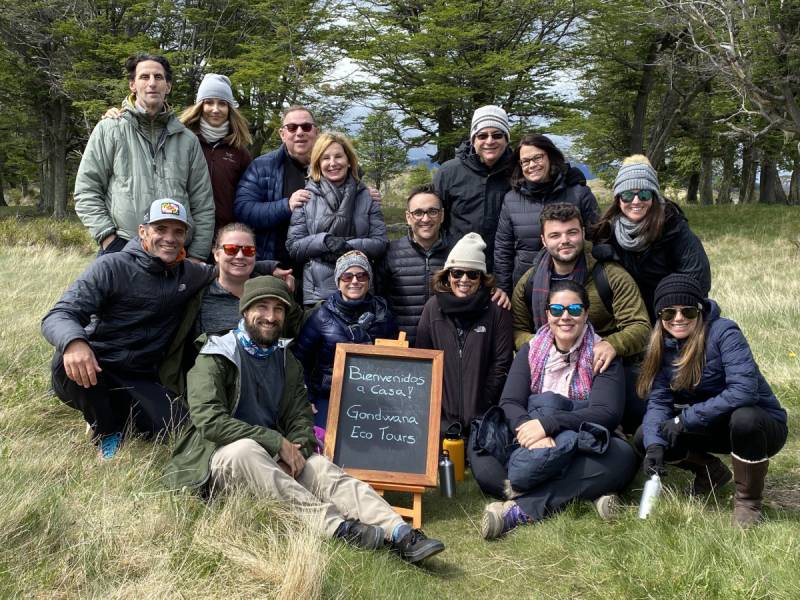Exploring Sustainable Travel in Tanzania with Gondwana Ecotours
Download Travel Details >PRIVATE & SMALL GROUP TOURS TO THE WORLD'S BEST DESTINATIONS
Join Us For A Safari In Tanzania

Discover Tanzania Ecotourism for Your Next Adventure!
Sustainable travel in Tanzania has emerged as one of the most popular travel options for tourists wanting to experience the country’s incredible landscapes and wildlife, while protecting fragile ecosystems and endangered animals. This low-impact form of conservation tourism provides economic benefits to local communities, accounting for almost 12 percent of total employment in Tanzania. For a front-row seat to the marvels and mysteries of this East African country, consider booking your next trip abroad with Gondwana Ecotours!
What Is Ecotourism?
Tanzania ecotourism is more than a trend. It’s a commitment to preserving the country’s beautiful landscapes, diverse wildlife, and vibrant cultures while at the same time making sure that tourism benefits local communities. Whether you are following wildebeest across the Serengeti during the Great Migration, climbing found Kilimanjaro, or exploring the white sandy beaches of Zanzibar, sustainable travel in Tanzania allows you to experience the country’s wonders while minimizing your environmental footprint.
But what exactly is ecotourism, and what effect does it have on local communities? Eco-tourism, also known as conservation tourism, focuses on responsible travel that conserves the environment and supports local communities. In Tanzania, this means:
- Protecting wildlife and natural habitats: Supporting conservation projects that combat poaching and habitat destruction.
- Empowering local communities: Choosing locally owned lodges and tour operators to ensure economic benefits are reinvested into the community.
- Reducing carbon footprint: Using low-impact travel options like walking safaris, electric safari vehicles, and eco-lodges vs. traditional game drives and commercial lodging.
- Respecting local cultures and traditions: Engaging in ethical cultural tourism with indigenous groups like the Maasai and Chagga tribes.
Combining Responsible Travel with Cultural Exchange
Sustainable travel in Tanzania includes responsible wildlife viewing, reducing waste, and promoting renewable energy use during your visit. Community-based ecotourism initiatives empower local people and promote sustainable tourism practices that benefit both the environment and local communities. But conservation tourism isn’t just about nature – it’s also one of the best ways to preserve a country’s cultural identity. When you plan a cultural immersion activity in Tanzania, you help support one of the 120 ethnic groups that live there!
Tanzania ecotourism encourages responsible travelers to:
- Visit Maasai villages through ethical, non-exploitative tours.
- Support women-led community projects that empower local artisans.
- Learn about the Chaga tribe and their traditions, while respecting their way of life.
If you’re interested in sustainable travel in Tanzania, there are many companies that can help you combine once-in-a-lifetime safaris with immersive, cultural exchange opportunities that help you get a behind-the-scenes look at everyday life in Tanzania!
How to Be a Responsible Traveler in Tanzania
Tourism is a major contributor to Tanzania’s economy, providing employment opportunities and generating revenue for local communities. But that can bring a host of negative repercussions, including overuse of natural resources, habitat destruction, and the eradication of cultural diversity. If you want to preserve Tanzania’s diverse wildlife and unique cultural identity, opt for a tour operator that promotes sustainable practices and is committed to Tanzania ecotourism.
Follow these guidelines if you are interested in sustainable tourism in Tanzania:
- Choose certified eco-tour operators and ethical wildlife tours.
- Use reusable water bottles during your travels and minimize plastic waste.
- Engage in authentic cultural exchanges with local communities like the Maasai.
- Follow wildlife viewing guidelines by keeping a respectful distance and listening to your guide’s advice.
- Donate to conservation programs instead of giving money to children during cultural immersion activities.
To ensure you are following the guidelines for responsible conservation tourism in Tanzania, follow these four simple guidelines:
- Avoid wildlife interactions that involve touching or feeding animals. A reputable tour guide will never allow you to disturb the delicate balance of the natural world!
- Don’t buy souvenirs made from endangered species (e.g., ivory, coral). Instead, consider purchasing beadwork or other sustainable crafts from local artisans.
- Skip mass tourism activities that negatively impact local ecosystems.
- Avoid overcrowded safari vehicles that disturb animal behavior. Always follow your guide’s rules when on a safari drive, so the animals do not feel threatened.
Planning an Eco-Friendly Safari in Tanzania
One of the biggest draws for tourists in Tanzania is the safari circuit. With more than 22 national parks scattered across the country, game drives and other safari activities make up a huge part of the country’s tourism revenue. But with sustainable travel in Tanzania on the rise, more travel operators are looking at ways to incorporate eco-friendly options into their safari offerings. Here are five ways to guarantee an eco-friendly safari experience in Tanzania while following the principles of conservation tourism:
Sustainability Tip #1: Choose Eco-Friendly Accommodations
There are many lodges and camps in Tanzania that use sustainable practices such as solar energy, rainwater harvesting, and waste reduction. Their efforts support conservation in Tanzania by funding community development projects, wildlife protection, and environmental education. By staying in eco-friendly accommodation, travelers can reduce their environmental impact and support sustainable travel in Tanzania.
Sustainability Tip #2: Support Local Communities
During your travels, you can support local communities by purchasing locally made products and participating in community-based tourism activities. This not only helps to preserve local cultures and traditions but also ensures that tourism dollars stay within local communities. Some small group tours even allow volunteers to work with local community members on conservation projects, or to donate in support of these efforts directly.
Sustainability Tip #3: Respect Wildlife
Safari tours are a great way to see wildlife up close, but it is important to do so in a responsible and respectful manner. All visitors should follow the rules of the national parks and reserves they visit, but it is even more important to do so if you want to observe the guidelines and best practices for Tanzania ecotourism.
Sustainability Tip #4: Minimize Waste
One of the primary tenants of conservation tourism is to reduce waste. Travelers can do so by using reusable water bottles and cloth bags, and by avoiding plastic items such as straws, cups, and cutlery. The good news for tourists is that many tour operators accommodations make it easy for guests to be mindful of their environmental impact!
Sustainability Tip #5: Learn About Local Conservation Efforts
With sustainable travel in Tanzania on the rise, the country is home to many conservation efforts. These include wildlife protection, habitat restoration, and environmental education. Visitors interested in conservation tourism can learn about these efforts by visiting local conservation organizations, talking to conservationists, or participating in conservation-focused activities. This helps tourists gain a deeper understanding to Tanzania ecotourism and how they can help conservation efforts.
Sustainable Tourism with Gondwana Ecotours
Sustainable travel in Tanzania is essential to preserve the country’s natural and cultural heritage. By choosing a tour operator that makes sustainable travel a priority, you will help support local communities and minimize the impact of tourism on the environment. Consider booking your next small group tour to Tanzania with Gondwana Ecotours and make your next trip sustainable and eco-friendly. Call now – adventure is waiting!

